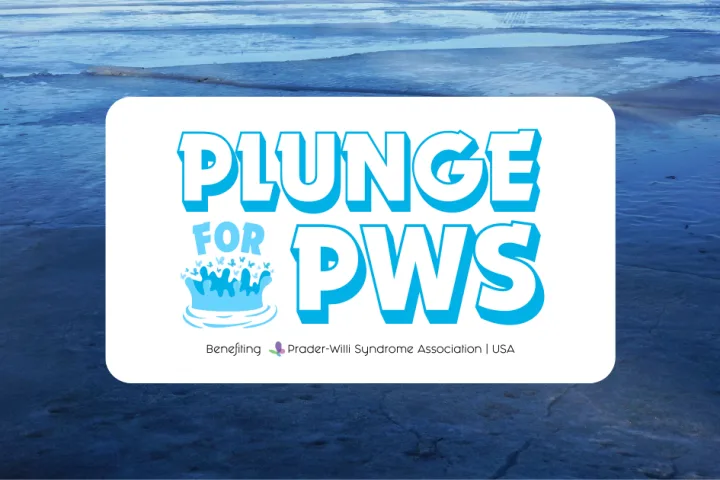With childhood obesity presenting a significant threat to child health, the American Academy of Pediatrics (AAP) is recognizing National Childhood Obesity Awareness Month during the month of September.
Early recognition and treatment of obesity has advantages. As we know in the PWS community, it is a daily struggle for most of our families. The AAP has proposed a few strategies to help families cope with and manage their child’s appetite and weight through a strength-based approach.
“At the core, this approach gives parents and children the ability to continue their development by encouraging a family’s growth and competency building across time. This approach acknowledges that parents are experts on their family and want to do right by their child. The clinician takes an active role in building parents’ knowledge and encouraging mastery while providing good ideas on how to integrate new opportunities for competency into a family’s daily life. In addition, the strength based approach encourages and is complementary to shared decision-making where clinicians and families can problem solve with the clinician to become
more efficacious in their health decision-making.” (AAP, 2020)
By focusing on the strengths of the family and not weaknesses, parents are empowered to make healthy decisions for their families. It is up to the medical provider to provide parents and children with the best tools and information to maintain the healthy lifestyle they are hoping to achieve.
Great tips from the American Academy of Pediatrics on ways to prevent childhood obesity and maintain a healthy lifestyle:
https://www.healthychildren.org/English/healthy-living/nutrition/Pages/Healthy-Active-Livingfor-Families.aspx
For some kid friendly and delicious healthy recipes:
https://www.healthychildren.org/English/healthy-living/nutrition/chop-chopmagazine/Pages/Recipe-Baked-Honey-Mustard-Chicken-Fingers.aspx
Contributed by Mary Burr, DNP, CPNP





 Perry A. Zirkel has written more than 1,500 publications on various aspects of school law, with an emphasis on legal issues in special education. He writes a regular column for NAESP’s Principal magazine and NASP’s Communiqué newsletter, and he did so previously for Phi Delta Kappan and Teaching Exceptional Children.
Perry A. Zirkel has written more than 1,500 publications on various aspects of school law, with an emphasis on legal issues in special education. He writes a regular column for NAESP’s Principal magazine and NASP’s Communiqué newsletter, and he did so previously for Phi Delta Kappan and Teaching Exceptional Children. Jennifer Bolander has been serving as a Special Education Specialist for PWSA (USA) since October of 2015. She is a graduate of John Carroll University and lives in Ohio with her husband Brad and daughters Kate (17), and Sophia (13) who was born with PWS.
Jennifer Bolander has been serving as a Special Education Specialist for PWSA (USA) since October of 2015. She is a graduate of John Carroll University and lives in Ohio with her husband Brad and daughters Kate (17), and Sophia (13) who was born with PWS. Dr. Amy McTighe is the PWS Program Manager and Inpatient Teacher at the Center for Prader-Willi Syndrome at the Children’s Institute of Pittsburgh. She graduated from Duquesne University receiving her Bachelor’s and Master’s degree in Education with a focus on elementary education, special education, and language arts.
Dr. Amy McTighe is the PWS Program Manager and Inpatient Teacher at the Center for Prader-Willi Syndrome at the Children’s Institute of Pittsburgh. She graduated from Duquesne University receiving her Bachelor’s and Master’s degree in Education with a focus on elementary education, special education, and language arts. Evan has worked with the Prader-Willi Syndrome Association (USA) since 2007 primarily as a Crisis Intervention and Family Support Counselor. Evans works with parents and schools to foster strong collaborative relationships and appropriate educational environments for students with PWS.
Evan has worked with the Prader-Willi Syndrome Association (USA) since 2007 primarily as a Crisis Intervention and Family Support Counselor. Evans works with parents and schools to foster strong collaborative relationships and appropriate educational environments for students with PWS. Staci Zimmerman works for Prader-Willi Syndrome Association of Colorado as an Individualized Education Program (IEP) consultant. Staci collaborates with the PWS multi-disciplinary clinic at the Children’s Hospital in Denver supporting families and school districts around the United States with their child’s Individual Educational Plan.
Staci Zimmerman works for Prader-Willi Syndrome Association of Colorado as an Individualized Education Program (IEP) consultant. Staci collaborates with the PWS multi-disciplinary clinic at the Children’s Hospital in Denver supporting families and school districts around the United States with their child’s Individual Educational Plan. Founded in 2001, SDLC is a non-profit legal services organization dedicated to protecting and advancing the legal rights of people with disabilities throughout the South. It partners with the Southern Poverty Law Center, Protection and Advocacy (P&A) programs, Legal Services Corporations (LSC) and disability organizations on major, systemic disability rights issues involving the Individuals with Disabilities Education Act (IDEA), Americans with Disabilities Act (ADA), and the federal Medicaid Act. Recently in November 2014, Jim retired.
Founded in 2001, SDLC is a non-profit legal services organization dedicated to protecting and advancing the legal rights of people with disabilities throughout the South. It partners with the Southern Poverty Law Center, Protection and Advocacy (P&A) programs, Legal Services Corporations (LSC) and disability organizations on major, systemic disability rights issues involving the Individuals with Disabilities Education Act (IDEA), Americans with Disabilities Act (ADA), and the federal Medicaid Act. Recently in November 2014, Jim retired.